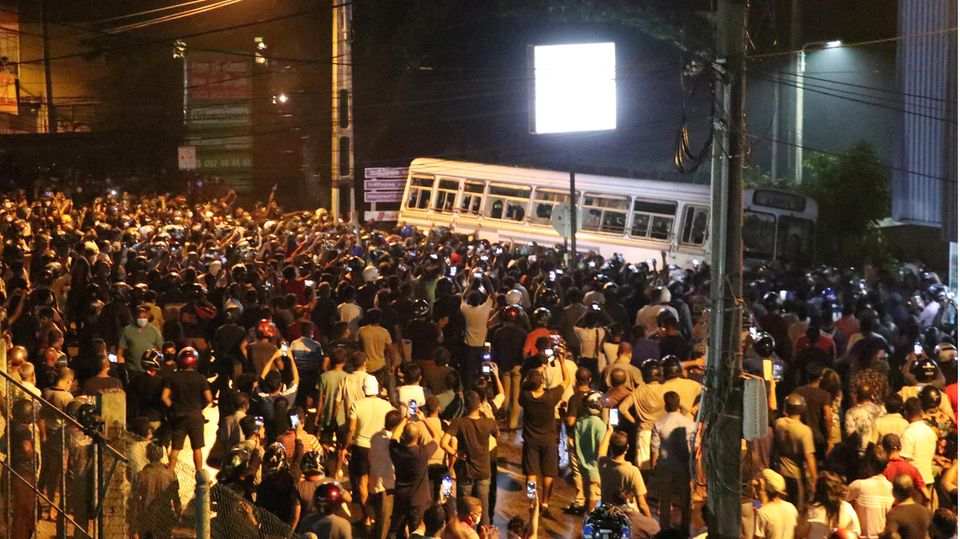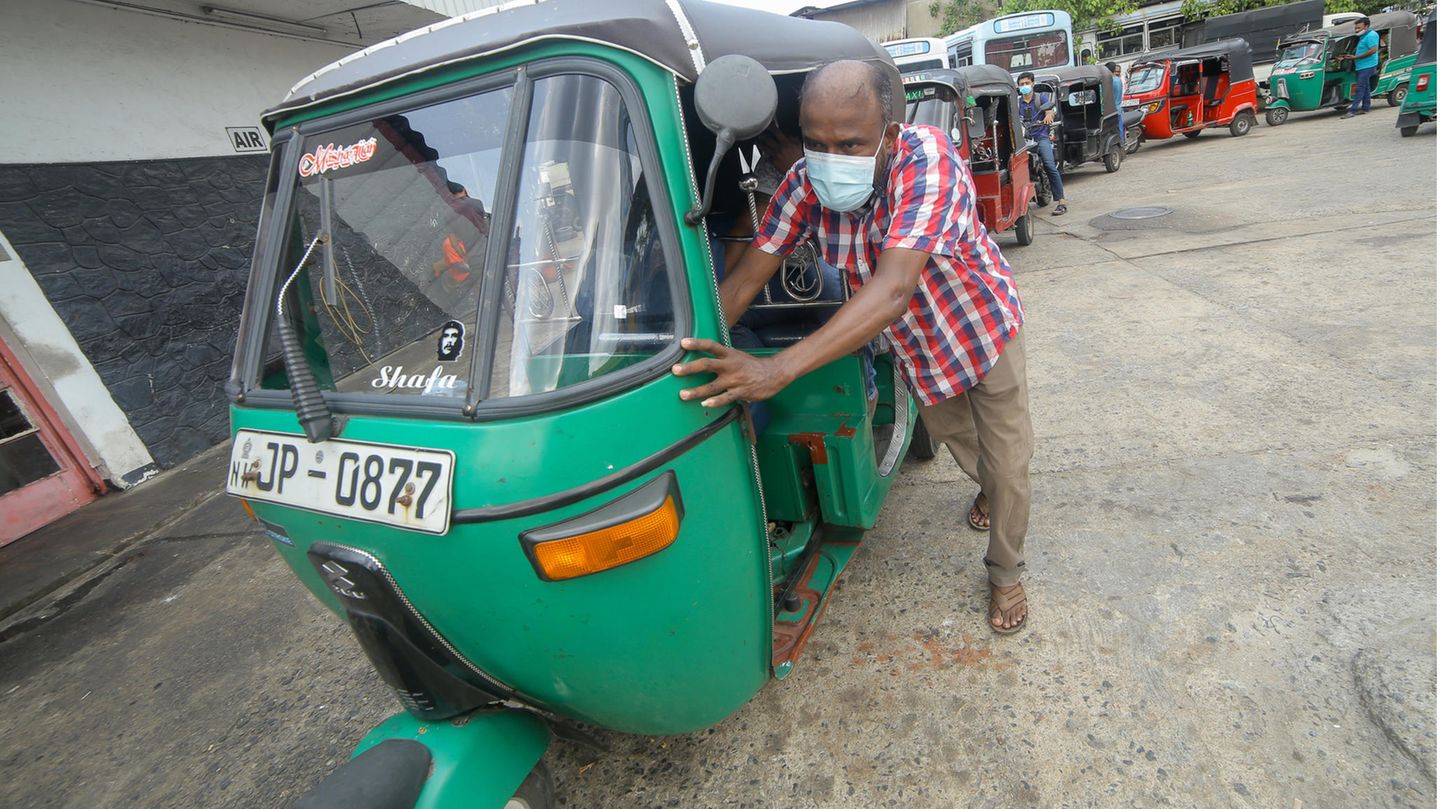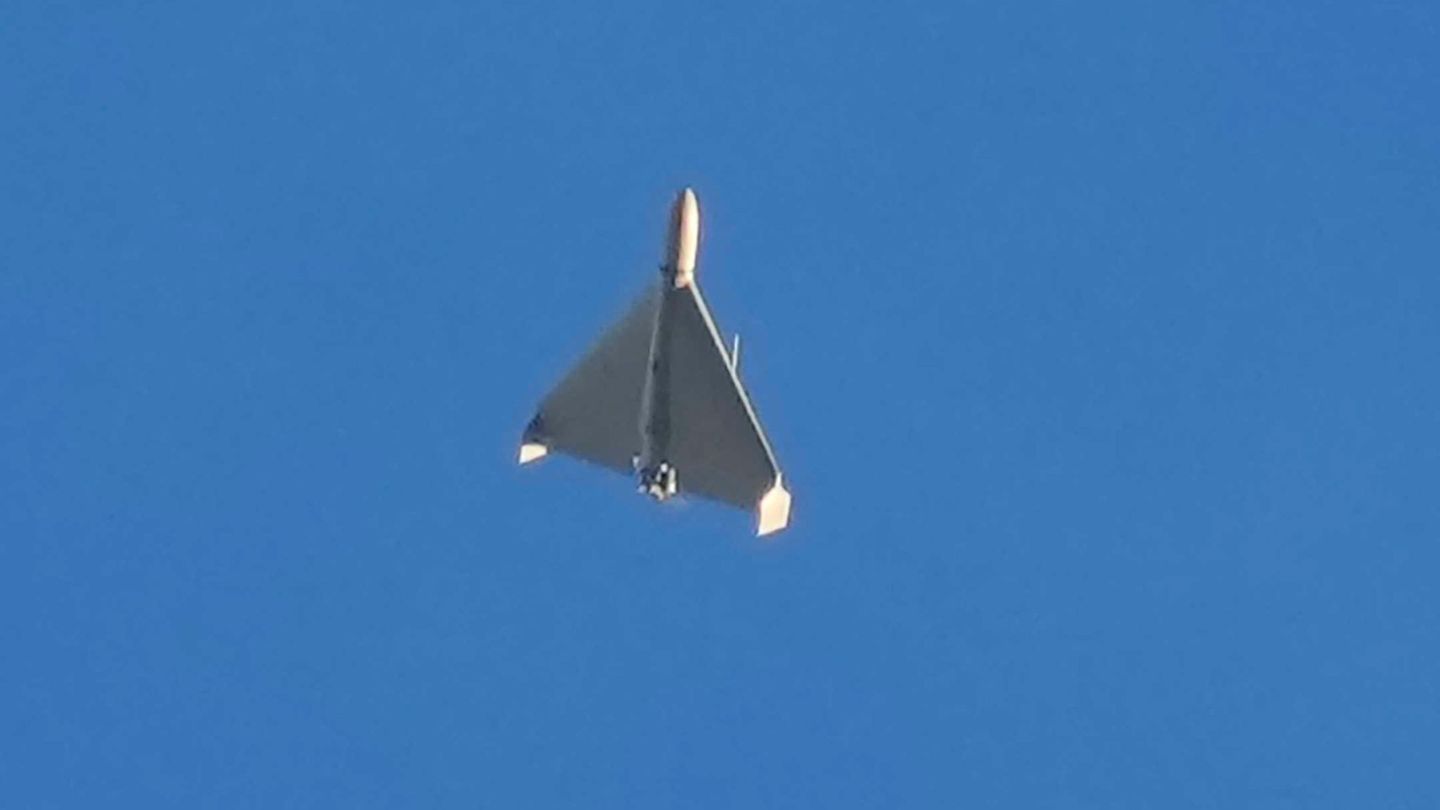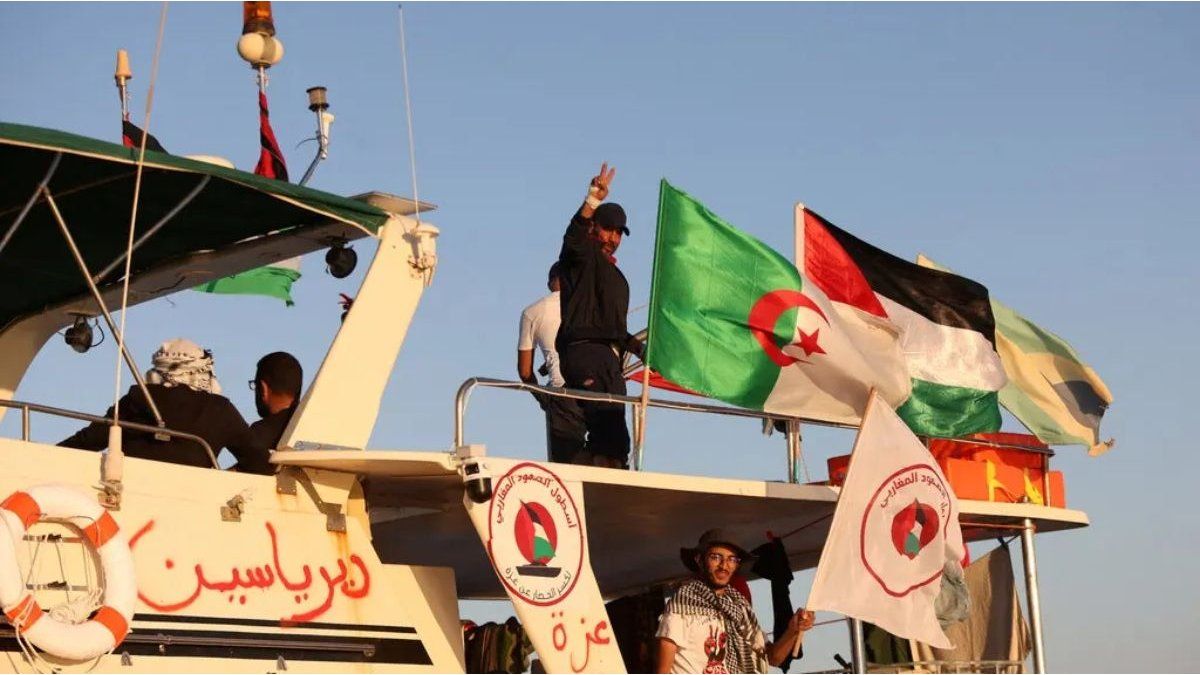Hours of power outages, massive inflation, no petrol and gas, and a shortage of food. Sri Lanka has been in crisis mode for weeks, and the situation escalated over the weekend. The frustration of the 22 million inhabitants is primarily directed at President Gotabaya Rajapaksa and his family.
It’s a common sight on the streets of Sri Lanka right now – although walking is actually wrong. People in the capital Colombo and other parts of the country queue for hours, sometimes even days, to get petrol or gas. There has been an economic crisis in the holiday paradise for months, which has worsened dramatically in recent weeks. In February, food inflation rose to 30.2 percent, and national inflation was 17.5 percent, up from 4.2 percent a year earlier.
The crisis has been hovering over the country not far from India for years like the sword of Damocles. In a 2019 study, the Asian Development Bank ADB named Sri Lanka as a country with twin deficits. “A twin deficit describes when a country’s expenditures are higher than its revenues and the production of goods and services is insufficient,” says the report. As a result, countries like Sri Lanka are often plagued by high debt burdens and are in dire need of outside capital reliant.
Sri Lanka – hit hard by terrorist attacks and the corona pandemic
But that’s exactly where the island state is lacking – and in many ways. After the terrorist attacks in April 2019, fewer tourists traveled to the country, and with the outbreak of the corona pandemic, the tourism sector was completely idle. While revenue from the tourism industry was $4.38 billion in 2018, it shrank to a measly $261 million last year. The rating agencies also reacted to the country’s ongoing financial misery. Already blessed with a poor credit rating, Sri Lanka was downgraded to CC by the rating agency Fitch in December 2021 – one of the worst ratings ever. The result: it is almost impossible for Sri Lanka to borrow money because there is a great risk that the island state will not be able to repay the debt.
The country’s financial problems are partly home-made and have to do with one last name: Rajapaksa. Mahinda Rajapaksa is Prime Minister of Sri Lanka, his brother Gotabaya, Gota for short, has been the country’s President since 2019. Another brother, Basil, was finance minister until last Sunday, and the older brother, Chamal, was agriculture minister, before both reacted to public pressure and resigned. Mahinda, himself President of the country between 2005 and 2015, had already announced tax cuts during his election campaign, which he implemented despite the country’s financial losses in the pandemic. At the same time, the government generously paid out corona aid.
mistakes made by the President
The decree by President Gotabaya Rajapaksa last April that pesticides and fertilizers may not be imported or used also proved to be a momentous decision. “I can’t remember the last time we had such big problems getting a decent harvest,” rice farmer WM Seniveratne complained to Reuters at the beginning of March. Last year he harvested 60 sacks of rice on his two hectares of land “, this year there are ten. After major protests, the Rajapaksa decree was withdrawn again, but that didn’t help much. The fertilizers only arrived in a few parts of the country, for this year losses of 30 percent in the harvest are expected – what in return drives up the prices for food even further. There is no end in sight. “The interim ban is the main reason for this. We expect that the yields of the next crop will be significantly lower,” said Buddhi Marambe, Professor of Agriculture at the University of Peradeniya in Sri Lanka’s hill country. Grocery costs are likely to continue to rise for the next four to five months, he estimated.
But not only the rice is scarce, but also other basic needs. Because there are only a few dairy farmers in the country, Sri Lanka has to import milk powder, which has recently become increasingly expensive. At the beginning of April 1945, a kilo of the powder cost rupees (around six euros), at the beginning of December the price was still 1,200 rupees (around 3.60 euros). The prices of other important foods such as sugar, eggs and coconut oil have also risen sharply recently. At the same time, the value of the rupee is plummeting. In March alone, it lost 40 percent of its value against the dollar, partly because the government deviated from the fixed exchange rate and introduced fluctuating exchange rates, so-called floating. The rising prices are causing desperation in many places. “My monthly costs were usually around 30,000 rupees (around 92 euros) a month. This month I’ve already spent 83,000 rupees (around 254 euros)”, complains Vani Susai in the “Indian Express”. Their income, on the other hand, is only 55,000 rupees a month.
Hours of power outages across the country
The crisis has now also reached the country’s energy sector. Petrol and gas have been scarce for weeks and, if available, horrendous prices are being called up in the energy sector, also due to the global economic situation. Many of the residents depend on petrol for their mopeds and tuk-tuks and gas for cooking. People queue for hours, sometimes days, to get petrol and gas – people have already died while waiting. “Our daily routine is limited to standing in line,” Malkanthi Silva tells CNN. “When we need gas, there’s a line. If we need powdered milk, there’s a snake. If we need medicine, there is a line.”
The difficulties in the energy sector in particular pose problems for many of the country’s 22 million inhabitants. Because power plants also lack petrol, there have been hour-long power outages across the country for weeks, because a third of the country’s electricity production comes from oil-fired power plants. Without electricity, however, many companies cannot work, supermarkets find it difficult to cool groceries, let alone the residents without petrol it is difficult to get to work.
So far there is no prospect of an improvement in the situation because the government is slowly running out of money. Sri Lanka’s foreign reserves shrank to $2.2 billion in February from $6.9 billion in 2018. At the same time, the country has debts of $45 billion, of which $4 billion must be paid this year alone. Only China and India have recently shown themselves willing to lend money to Sri Lanka so that the country can buy diesel and gas. Recently there have also been talks with the International Monetary Fund about renewed financial support.

Ministers resign as a body – only the President does not
By the time this arrives, however, the rule of the Rajapaksas in Sri Lanka could be over, because recently events were also taking a turn for the worse politically. Hundreds of demonstrators who tried to storm the President’s house gathered last Thursday. Gotabaya Rajapaksa then imposed a state of emergency, which was only lifted five days later and did not prevent the residents from taking to the streets and demonstrating against Rajapaksa and his family despite the ban. As a result of the crisis, all 26 ministers in the country resigned on Sunday – only Gotabaya and Mahinda Rajapaksa remained in office and declared that they still did not want to leave. At the same time, however, they offered the opposition participation in the government, which the latter, however, rejected unanimously. “We will not join this government,” said Eran Wickramaratne of the main opposition party, Samagi Jana Balawegaya (SJB). “The Rajapaksa family must resign.” Similarly, Tamil National Alliance MP Abraham Sumanthiran said: “His offer to fill the cabinet with opposition MPs is nonsensical.” The next day, more than 40 members of parliament withdrew their support from the ruling party, and Sri Lanka’s president lost the parliamentary majority. The newly appointed finance minister, Ali Sabry, announced his resignation after just one day in office.
Meanwhile, there is no end in sight to the crisis, and experts assume that it will get worse in the coming weeks and months. Driven by necessity, a new situation arises for many residents. During the civil war, many of them fled to neighboring India for fear of the war between 1983 and 2009. Now hunger and misery are triggering a new wave of refugees.
Sources: , , , , , , , , , Reuters, dpa
Source: Stern
David William is a talented author who has made a name for himself in the world of writing. He is a professional author who writes on a wide range of topics, from general interest to opinion news. David is currently working as a writer at 24 hours worlds where he brings his unique perspective and in-depth research to his articles, making them both informative and engaging.




